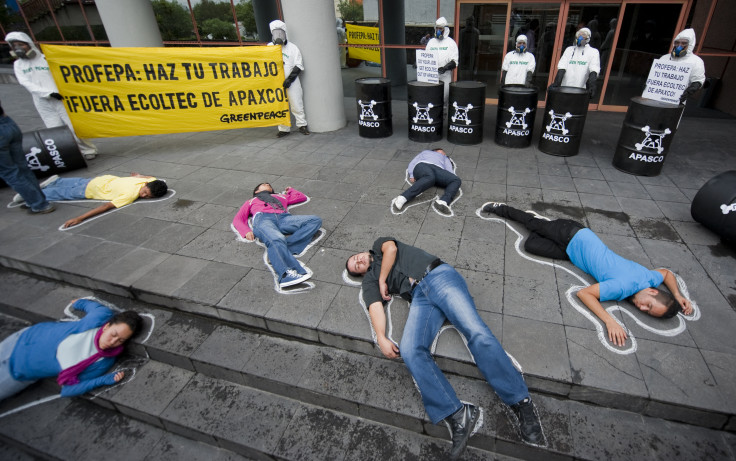
An investigation by The Guardian and Quinto Elemento Lab has revealed that US companies are increasingly sending hazardous waste abroad, with over 1 million tons of toxic materials shipped to other countries annually. The shipments have raised alarms about potential environmental and health risks, particularly in Mexico and Canada, where some areas struggle with inadequate environmental controls.
Exports of hazardous waste have surged by 17% since 2018, according to US records, with Mexico and Canada being the primary recipients. While the practice is legal, experts warn it may be putting vulnerable communities at risk. The waste often ends up in places where environmental regulations are weak or outdated, raising questions about safety.
In Mexico's Monterrey area, an investigation uncovered alarming levels of lead, cadmium, and arsenic in homes and schools near a plant recycling toxic dust from the US steel industry. In 2022, this region received nearly half of all hazardous waste exported by the US, including not only steel dust but also hundreds of thousands of tons of lead batteries.
Almost one-seventh of the waste the US exported worldwide in 2022 consisted of contaminated steel dust, which was processed at Zinc Nacional in the municipality of San Nicolás de los Garza, near Monterrey. Marisa Jacott, director of Fronteras Comunes, in Mexico, described the practice as "waste colonialism" and an environmental injustice. "It's the United States treating Mexico as its backyard", she told the Guardian.
Meanwhile, in Quebec, Canada, children and adults living near a smelter that processes US electronic waste have been found to have elevated levels of arsenic in their bodies. Martine Ouellet, former natural resources minister of Quebec, condemned the shipments, asking, "How can we accept being the trash can for the United States?"
Companies processing the waste argue they manage it responsibly. However, experts like Tim Whitehouse, a former attorney for the US Environmental Protection Agency, warned that many companies choose to export hazardous waste to places with fewer regulations to minimize costs.
US laws require companies to manage hazardous waste from creation to disposal, but the responsibility ends at the border. Cross-border treaties allow waste to be exported as long as the receiving country agrees to manage it safely, yet the US has no authority to regulate these facilities once the waste leaves the country.
Temarry Recycling, a company in Mexico that handles US waste, has faced criticism over its operations. In 2022, the company processed around 7,000 tons of toxic solvents and chemical mixtures, claiming in its advertisements to distill the waste into clean solvents or burn it for energy recovery, selling the residue to cement kilns as fuel.
Temarry's plant near the California border in Tecate, Mexico, was shut down for two months in 2022, after a chemical leak, and reports of environmental violations and worker safety concerns have emerged. Environmentalists fear the lack of oversight in Mexico exacerbates the risks.
As the US tightens regulations on lead emissions inside its own borders, US Environmental Protection Agency data shows nearly 4 million tons of discarded lead batteries were exported between 2018 and 2022—primarily to Mexico, with an increasing trend to South Korea.
The lead is processed in secondary smelters and refabricated into new batteries, some of which are reimported into the US and sold to consumers. While recycling has become a major source of lead for car batteries, environmental and trade groups warn that workers in countries like Mexico are exposed to dangerous levels of lead, a highly toxic substance, and they do not receive the same protections from lead exposure as those in the US.
© 2024 Latin Times. All rights reserved. Do not reproduce without permission.











